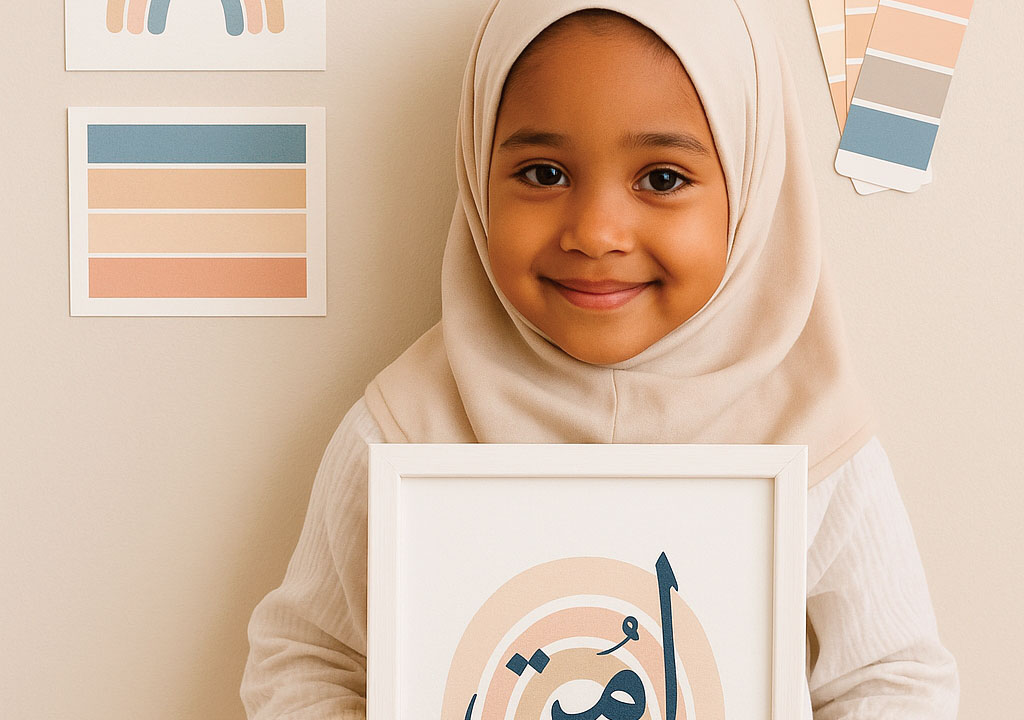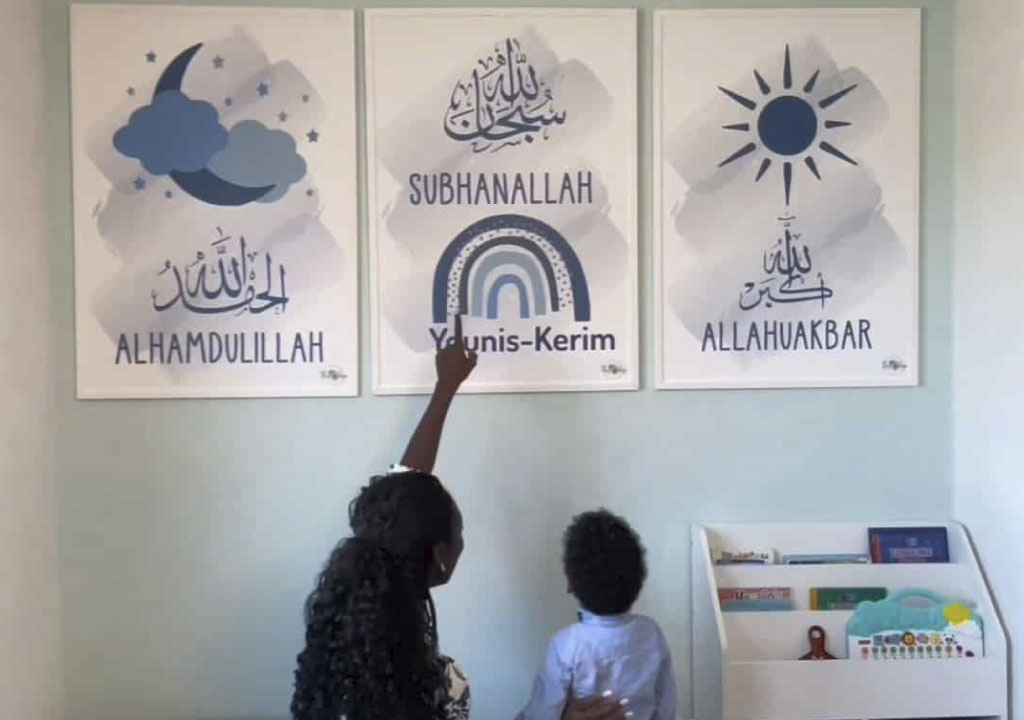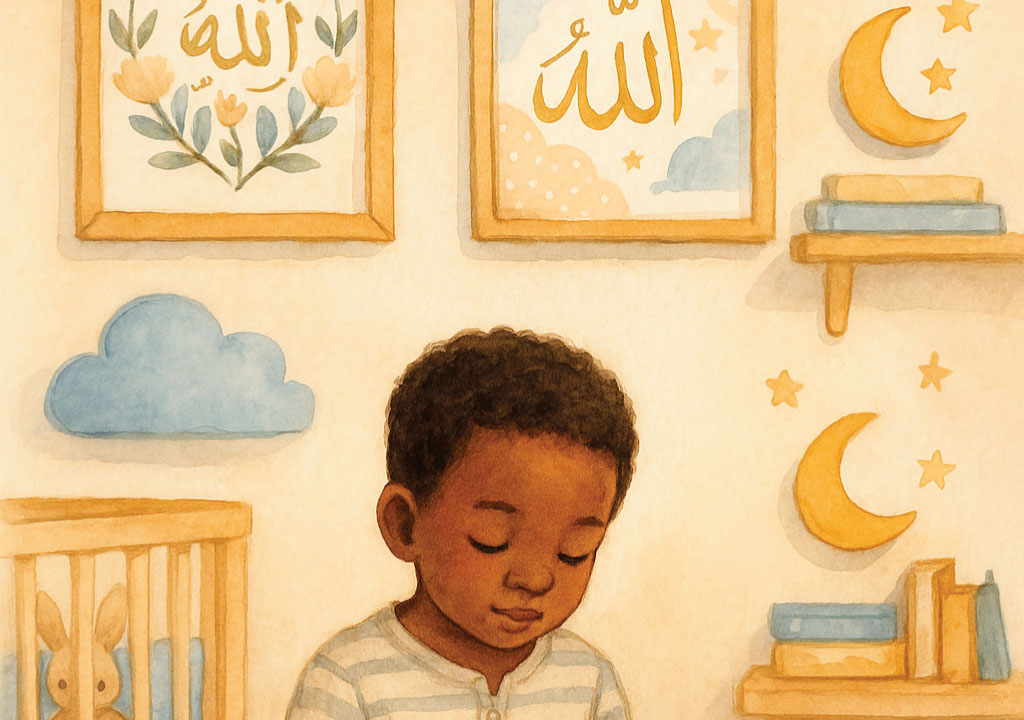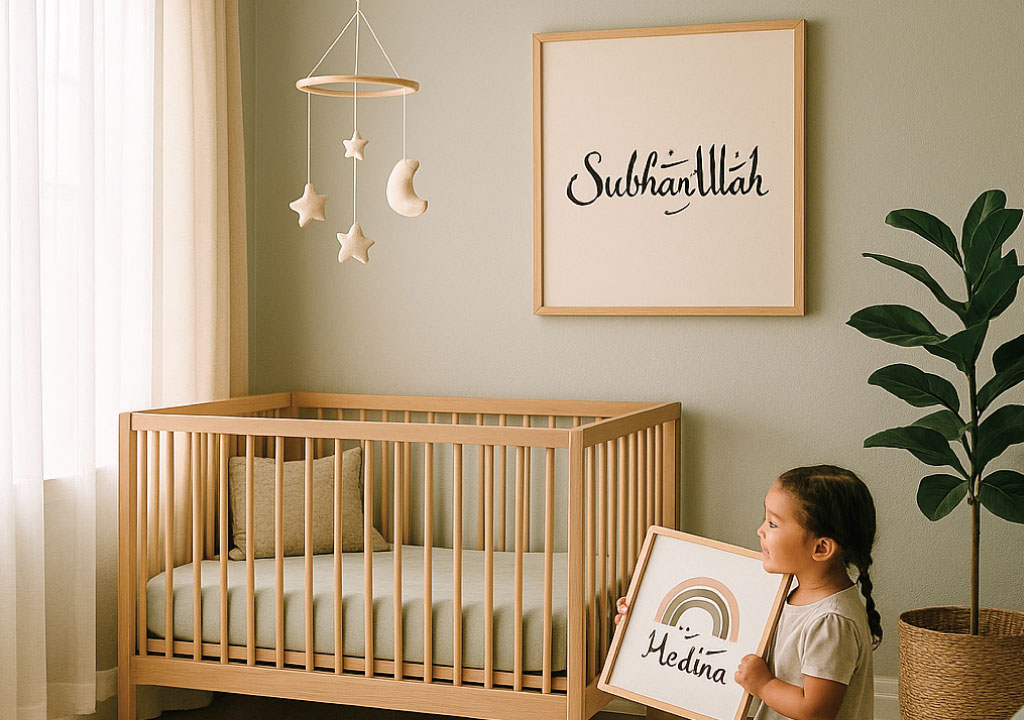Blog
Personalisation 101: Why Your Child’s Name in Arabic Matters

Personalisation 101: Why Your Child’s Name in Arabic Matters
In a world filled with mass-produced everything, few things feel as special as seeing your own name thoughtfully displayed—especially in your mother tongue, especially in Arabic. For Muslim children growing up in diverse or non-Muslim environments, personalisation is more than a design trend—it’s a powerful affirmation of identity, faith, and belonging.
Names Are More Than Words
In Islamic tradition, names carry deep meanings and spiritual weight. Each child’s name is chosen with love, intention, and often with reference to the Qur’an or the Prophet’s companions. Displaying that name in Arabic is like honoring that intention—it’s a reminder of where they come from, and who they’re meant to be.
A Daily Anchor to Identity
When children see their names written beautifully in Arabic calligraphy—whether in a nursery, study space, or prayer corner—it reinforces a sense of pride in their faith and heritage. It quietly teaches them that being Muslim is not something separate from everyday life—it’s something woven into their very name.
Bridging Language, Culture & Love
Even if a child doesn't yet read Arabic, seeing their name written in the language of the Qur’an creates a subconscious bond with their cultural and religious roots. Over time, it encourages curiosity and familiarity with the Arabic script—opening the door for deeper connections with their deen.
A Gift That Lasts
Personalised Islamic décor isn’t just cute or trendy—it’s timeless. It’s the kind of keepsake your child will treasure for years to come. From baby gifts to Eid surprises, a name in Arabic is always a gift that says, you matter, and so does your story.
Related Posts
Inspiring Islamic Wall Art: Nurturing a Daily Islamic Routine for Your Child in Modern Times
-
Posted by
 Sefau
Sefau
- 0 comments
Charitable Decor: Making A Difference Through Your Interior Choices
-
Posted by
 Sefau
Sefau
- 0 comments
From Dhikr to Décor: Raising Confident Little Muslims through Everyday Art
-
Posted by
 Sefau
Sefau
- 0 comments
How Islamic Nursery Décor Nurtures Mindfulness & Calm
-
Posted by
 Sefau
Sefau
- 0 comments
Creating Timeless Memories with Personalised Islamic Wall Art
-
Posted by
 Sefau
Sefau
- 0 comments










